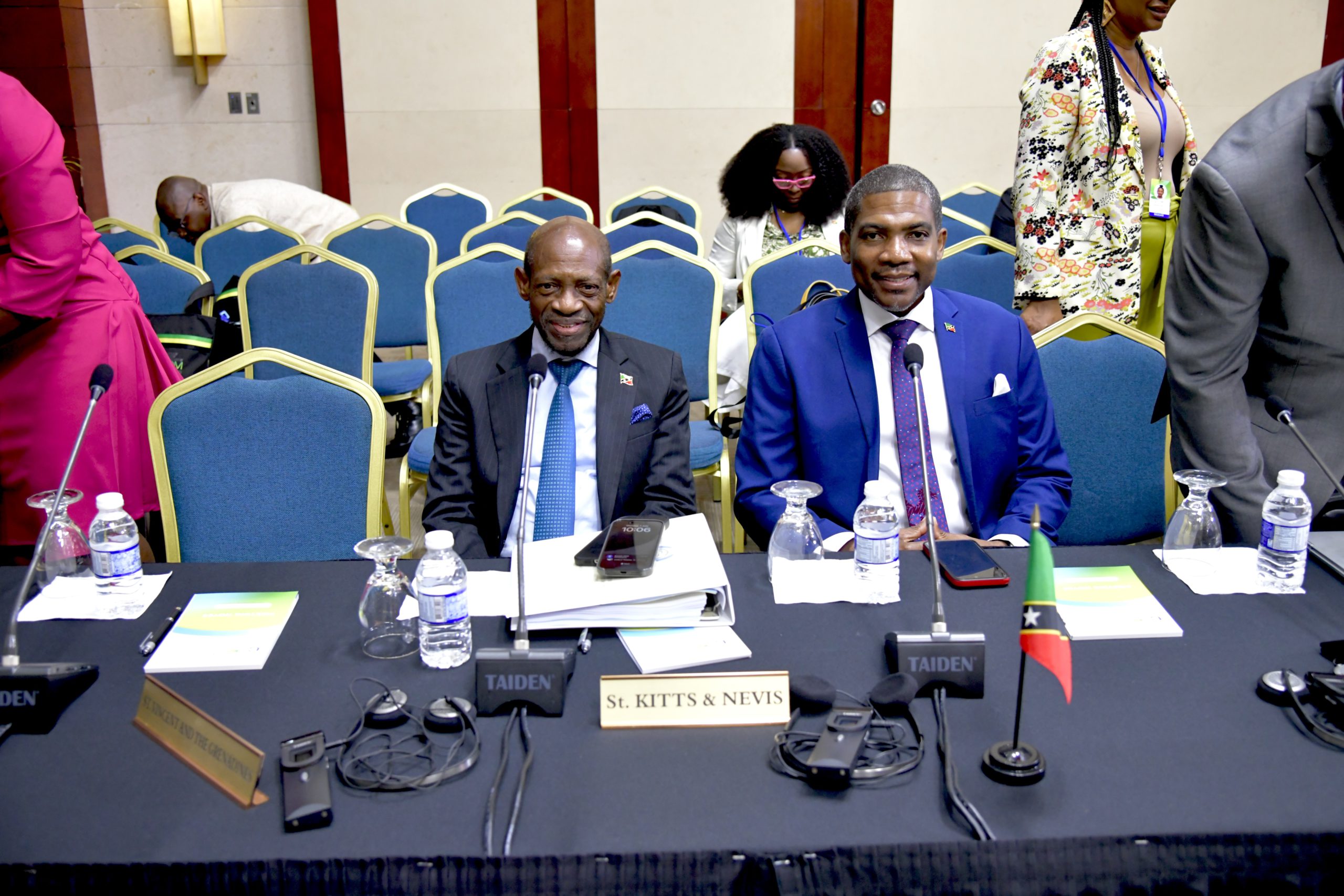Prime Minister Drew Advocates for Decisive Climate Action at CARICOM Summit
The 49th Meeting of the Conference of Heads of Government of the Caribbean Community (CARICOM), held in Montego Bay, Jamaica, in July 2025, served as a critical platform for regional leaders to address pressing issues facing the Caribbean, most notably the escalating climate crisis. Among the prominent voices at the conference was the Honourable Dr. Terrance Drew, Prime Minister of St. Kitts and Nevis, who delivered a compelling address urging his fellow Heads of Government to maintain a resolute and unified stance in their climate change advocacy, resisting pressures to soften their message for the appeasement of industrialized nations. Prime Minister Drew’s intervention underscored the importance of maintaining the Caribbean’s moral authority and amplifying its voice on the global stage.
Prime Minister Drew’s address centered on the critical need for the Caribbean to retain the power of its narrative in the face of the climate crisis. He cautioned against diluting the region’s language to accommodate the interests of powerful nations that bear primary responsibility for global emissions. He argued that such compromise would undermine the urgency and gravity of the situation faced by Caribbean nations, which are disproportionately vulnerable to the impacts of climate change. His message resonated with the historical struggles faced by the region, drawing parallels between the current climate crisis and past injustices, including the exploitation of the Caribbean during the colonial era, particularly concerning the sugar and banana industries.
The Prime Minister emphasized that altering the region’s language to make it more palatable to industrialized nations would not guarantee cooperation or meaningful action. He argued that the focus should remain on articulating the stark realities of climate change’s impact on the Caribbean, highlighting the injustices inherent in the disproportionate burden placed on small island developing states. He reminded his colleagues that historical precedent demonstrates that even when the Caribbean tempers its language, those in positions of power often still resist engaging in meaningful collaboration to address the underlying issues. He urged the Caribbean leaders not to be discouraged by potential resistance but to remain steadfast in their demands for climate justice.
Dr. Drew anchored his argument in the historical context of the Caribbean’s experience with colonialism and exploitation. He highlighted the region’s long-standing struggle for reparations for the injustices of slavery and the inequitable trade practices that have historically disadvantaged Caribbean economies. He posited that the current climate crisis presents a similar dynamic, where industrialized nations, historically responsible for the majority of greenhouse gas emissions, are now pressuring vulnerable nations to soften their calls for climate action and financial support. He warned against repeating the historical pattern of silencing Caribbean voices in the interest of maintaining diplomatic relationships, emphasizing that the cost of such silence is too high.
To bolster his argument for maintaining a strong and unified Caribbean voice, Prime Minister Drew pointed to recent international forums hosted in St. Kitts and Nevis, including the Green Climate Fund Board Meeting and the Island Innovation Caribbean Summit. These events, he argued, served as prime examples of platforms where Caribbean voices resonated with conviction and clarity, demonstrating the region’s ability to effectively articulate its concerns and demands on the international stage. He urged the CARICOM leaders to build upon this momentum, continuing to define their own narrative and lead with the truth and urgency demanded by the climate crisis.
The Prime Minister’s intervention served as a powerful reminder of the Caribbean’s historical resilience and its determination to advocate for its interests in the face of global challenges. His call for unity and unwavering commitment to the region’s climate change message resonated deeply within the context of the 49th CARICOM Heads of Government Meeting, which addressed a range of critical issues impacting the Caribbean, including climate resilience, regional food security, energy cooperation, the ongoing crisis in Haiti, the need for digital transformation, and the advancement of the CARICOM Single Market and Economy (CSME). The meeting, chaired by the Hon. Andrew Holness, Prime Minister of Jamaica, provided a vital forum for regional collaboration and strategic planning to address the complex challenges and opportunities facing the Caribbean community.
Share this content:












Post Comment